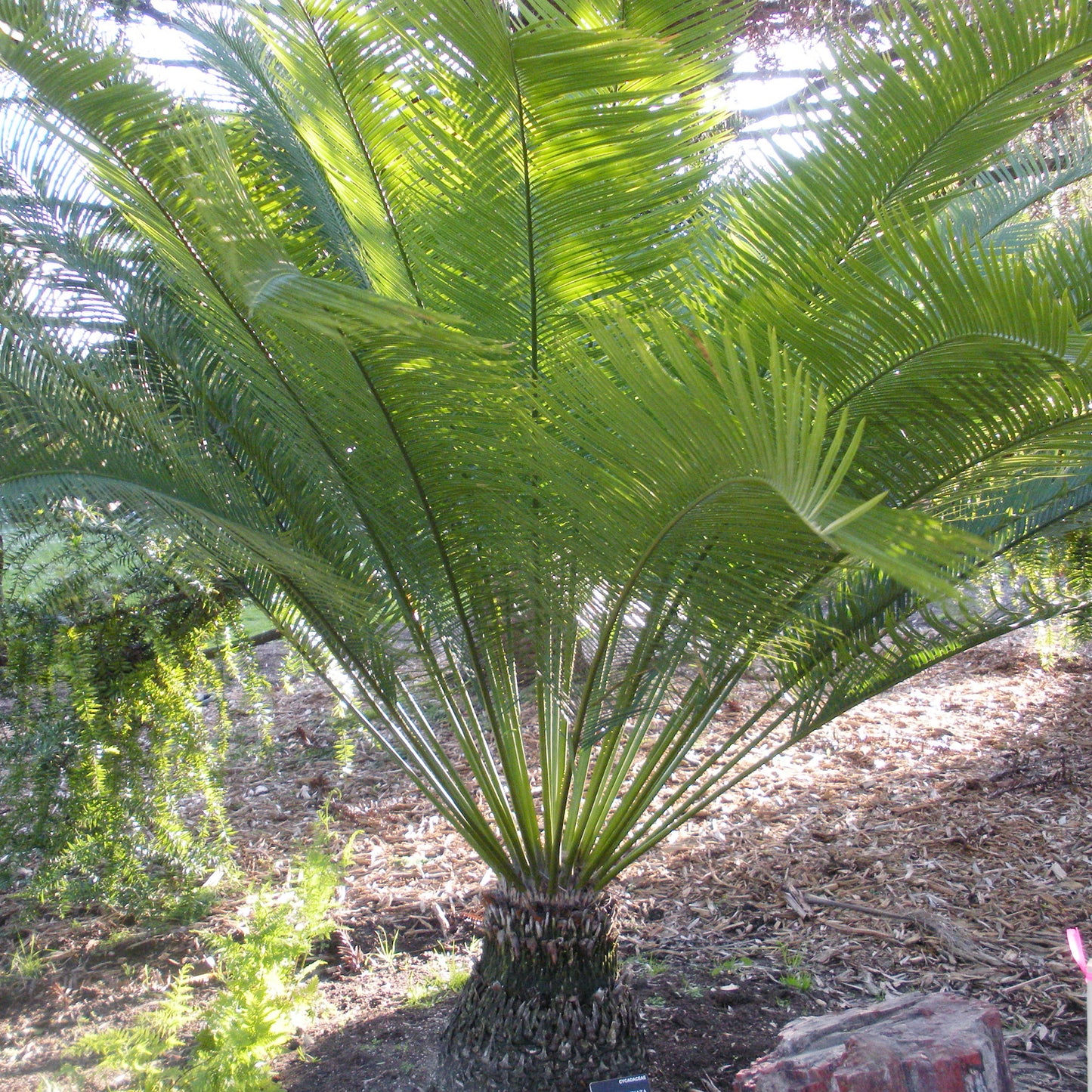Viriar
Cycas pectinata – Himalayan Sago (Seeds) | VIRIAR
Cycas pectinata – Himalayan Sago (Seeds) | VIRIAR
No se pudo cargar la disponibilidad de retiro
Cycas pectinata
Fern Palm / Himalayan Cycad
Ancient living fossil with majestic feathery fronds and prehistoric charm
About Cycas pectinata
Cycas pectinata, commonly known as the Fern Palm, Himalayan Cycad, or Pectinate Cycad, is a striking and ancient plant species belonging to the Cycadaceae family. This cycad is native to the eastern Himalayas and surrounding regions, including parts of India, Nepal, Bhutan, Myanmar, and southern China. It is revered for its prehistoric appearance, with features that have remained unchanged for millions of years, making it a living fossil.
The Fern Palm can grow into a large, tree-like cycad, reaching heights of 3-10 meters (10-33 feet), with a trunk diameter of up to 40 cm (16 inches). The trunk is typically solitary, topped with a crown of long, arching, feathery fronds that can grow up to 3 meters (10 feet) long. The leaves are pinnate and dark green, with numerous narrow, linear leaflets arranged in a pectinate (comb-like) pattern, which gives the plant its name.
Growing Conditions
Light Requirements
Cycas pectinata thrives in full sun to partial shade. While it can tolerate some shade, it performs best in bright light, which promotes healthier growth and more robust fronds.
Temperature Range
This cycad prefers warm, tropical to subtropical climates, with temperatures ranging from 20-30 °C (68-86 °F). It can tolerate cooler temperatures down to about 5 °C (41 °F) but requires protection from frost. It is suitable for USDA zones 9-11.
Soil Composition
The Fern Palm prefers well-draining, sandy or loamy soils with a slightly acidic to neutral pH. It can adapt to various soil types but thrives in soils rich in organic matter. Proper drainage is essential to prevent root rot.
Water Requirements
Cycas pectinata is relatively drought-tolerant once established but benefits from regular watering, especially during the growing season. The soil should be kept consistently moist but not waterlogged. Reduce watering during the winter months when the plant is not actively growing.
Planting and Care Instructions
Planting Location
Choose a location with full sun to partial shade and well-draining soil. If planting in the ground, ensure there is enough space for the plant to grow without being crowded by other vegetation. For container planting, use a pot with good drainage and a well-draining, sandy potting mix.
Fertilization Program
Fertilize Cycas pectinata with a balanced, slow-release fertilizer, preferably one formulated for cycads or palms. Apply fertilizer 2-3 times during the growing season to support healthy growth. Avoid over-fertilization, as cycads are sensitive to excessive nutrients.
Maintenance and Pruning
Prune old, yellowing fronds to maintain the plant's appearance and encourage new growth. Be cautious when handling the plant, as its leaves and trunk may have sharp edges. Regularly inspect the plant for pests such as scale insects and treat them accordingly.
Seed Germination Guide
Seed Preparation
Cycad seeds have a hard outer shell, so soaking them in warm water for 24-48 hours before sowing can help improve germination rates. Some growers may also scarify the seeds slightly to further encourage germination.
Sowing Process
Sow the seeds in a well-draining seed-starting mix, such as a blend of sand, perlite, and peat. Place the seeds horizontally or slightly buried in the soil, ensuring they are just covered with the mix.
Germination Conditions
Place the seed tray in a warm, humid environment with temperatures around 25-30 °C (77-86 °F). Maintain consistent moisture without waterlogging the soil. Germination can be slow, often taking several months to a year.
Seedling Care
Once seedlings emerge, provide them with bright, indirect light and keep the soil moist. As they grow, gradually acclimate them to more direct sunlight. Transplant seedlings into larger pots or directly into the garden once they are large enough to handle.
Quick Reference Summary
Premier Provider of Exceptional Exotic and Rare Seeds Worldwide
Specializing in authentic, carefully curated germplasm selected with meticulous precision and unwavering commitment to quality excellence.
Shipping & Returns
Shipping & Returns
Share









